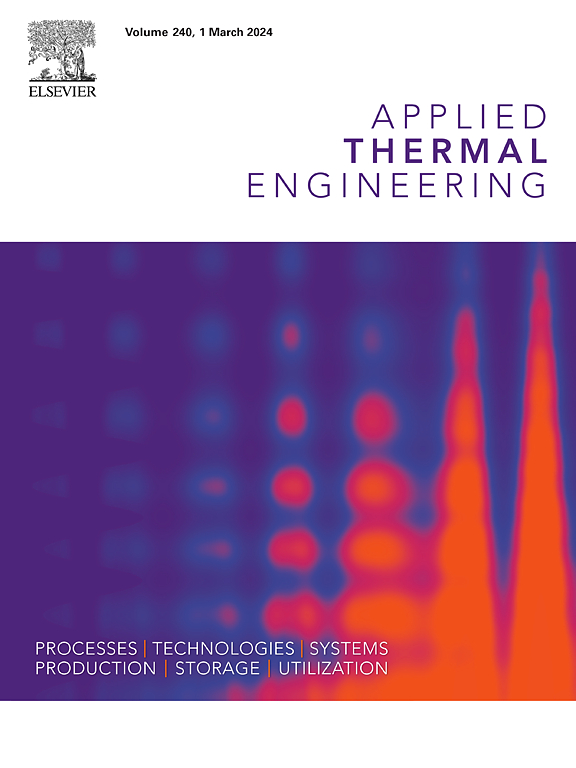Data-driven multi-objective optimization for combustion control in marine diesel- micro-ignited dual-fuel engines: resolving the NOx-efficiency trade-off
IF 6.9
2区 工程技术
Q2 ENERGY & FUELS
引用次数: 0
Abstract
This study investigates the impact of pre-injection strategies on combustion characteristics, emission performance, and fuel efficiency in diesel-micro-piloted natural gas engines based on modified marine high-pressure common rail diesel engines. Experimental results demonstrate that pre-injecting diesel under this micro-pilot dual-fuel operation significantly accelerates natural gas combustion, resulting in an 87.36 % increase in NOx emissions. This reveals a critical pitfall: a strategy designed to create a more homogeneous, low-temperature combustion mode instead triggers a high-temperature combustion event, contradicting the expected benefits of such a strategy. While high-pressure main injection alone can achieve a more desirable two-stage heat release profile, its thermal efficiency remains unsatisfactory. Through data-driven modeling (Gaussian Process Regression/XGBoost) and multi-objective optimization (NSGA-II), the research identifies speed-dependent optimal control strategies. The optimized system achieves NOx emissions as low as 1.7 g/kWh at medium speed and below 2.1 g/kWh across all tested speed ranges, successfully meeting IMO Tier III standards while maintaining brake thermal efficiency (BTE) above 40 % (specifically, between 40.5 % and 41.8 %). These findings provide critical references for retrofitting and calibrating diesel-micro-piloted natural gas engines in marine applications.
船用柴油微点燃双燃料发动机燃烧控制的数据驱动多目标优化:解决氮氧化物效率权衡问题
本研究研究了预喷射策略对基于船用高压共轨柴油机的柴油微导天然气发动机燃烧特性、排放性能和燃油效率的影响。实验结果表明,在该微先导双燃料工况下,预喷柴油可显著加速天然气燃烧,NOx排放量增加87.36%。这揭示了一个关键的陷阱:一种旨在创造更均匀的低温燃烧模式的策略反而引发了高温燃烧事件,与这种策略的预期好处相矛盾。虽然单独高压主喷射可以实现更理想的两级放热剖面,但其热效率仍然令人不满意。通过数据驱动建模(高斯过程回归/XGBoost)和多目标优化(NSGA-II),研究确定了与速度相关的最优控制策略。优化后的系统在中速下NOx排放量低至1.7 g/kWh,在所有测试速度范围内均低于2.1 g/kWh,成功满足IMO III级标准,同时将制动热效率(BTE)保持在40%以上(具体而言,介于40.5%至41.8%之间)。这些发现为船用柴油微导天然气发动机的改造和校准提供了重要参考。
本文章由计算机程序翻译,如有差异,请以英文原文为准。
求助全文
约1分钟内获得全文
求助全文
来源期刊

Applied Thermal Engineering
工程技术-工程:机械
CiteScore
11.30
自引率
15.60%
发文量
1474
审稿时长
57 days
期刊介绍:
Applied Thermal Engineering disseminates novel research related to the design, development and demonstration of components, devices, equipment, technologies and systems involving thermal processes for the production, storage, utilization and conservation of energy, with a focus on engineering application.
The journal publishes high-quality and high-impact Original Research Articles, Review Articles, Short Communications and Letters to the Editor on cutting-edge innovations in research, and recent advances or issues of interest to the thermal engineering community.
 求助内容:
求助内容: 应助结果提醒方式:
应助结果提醒方式:


